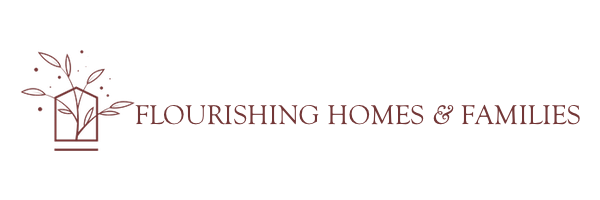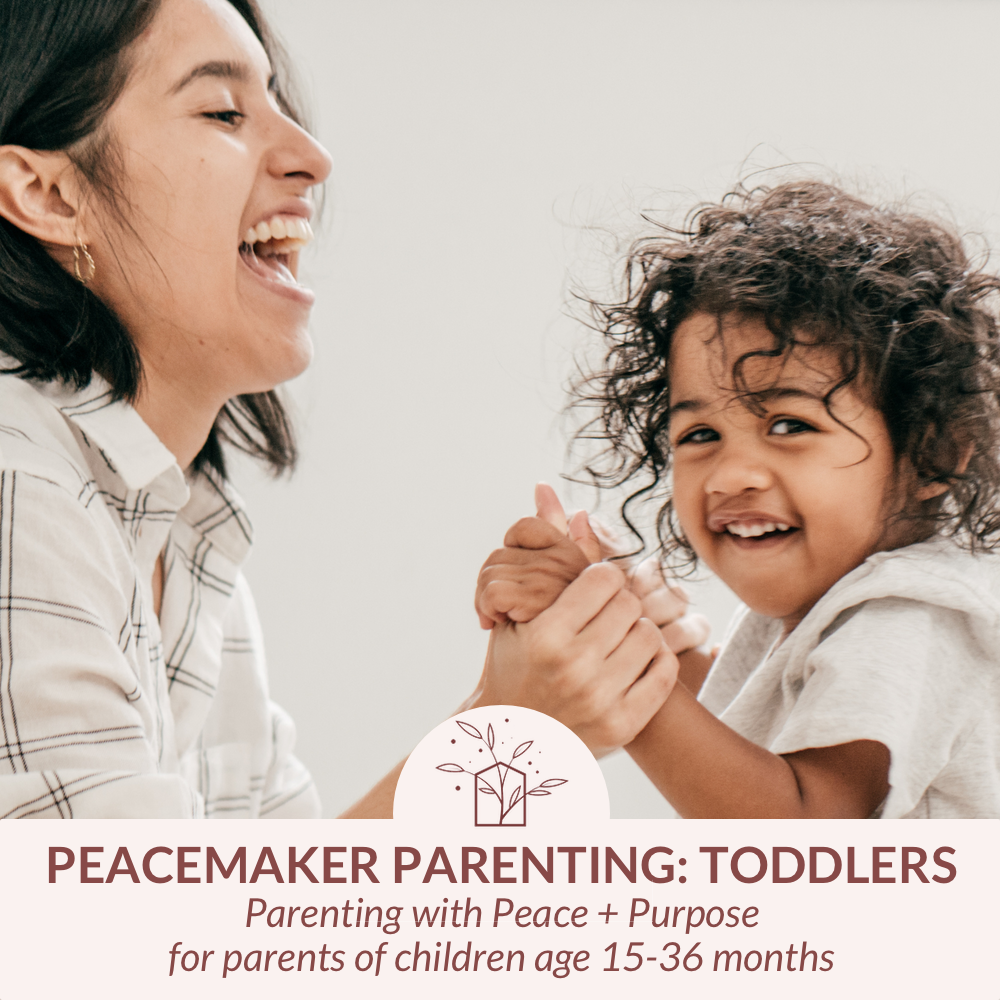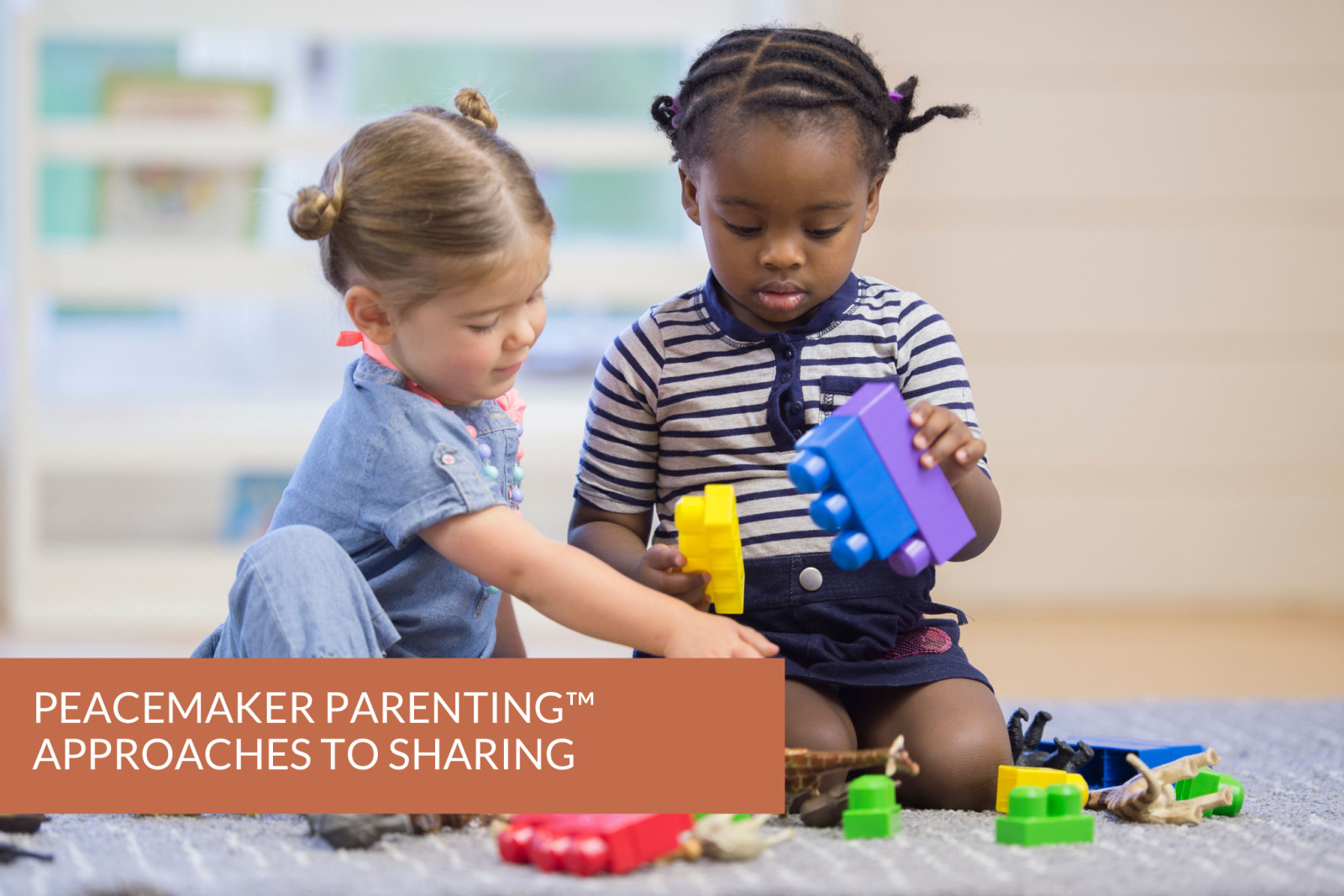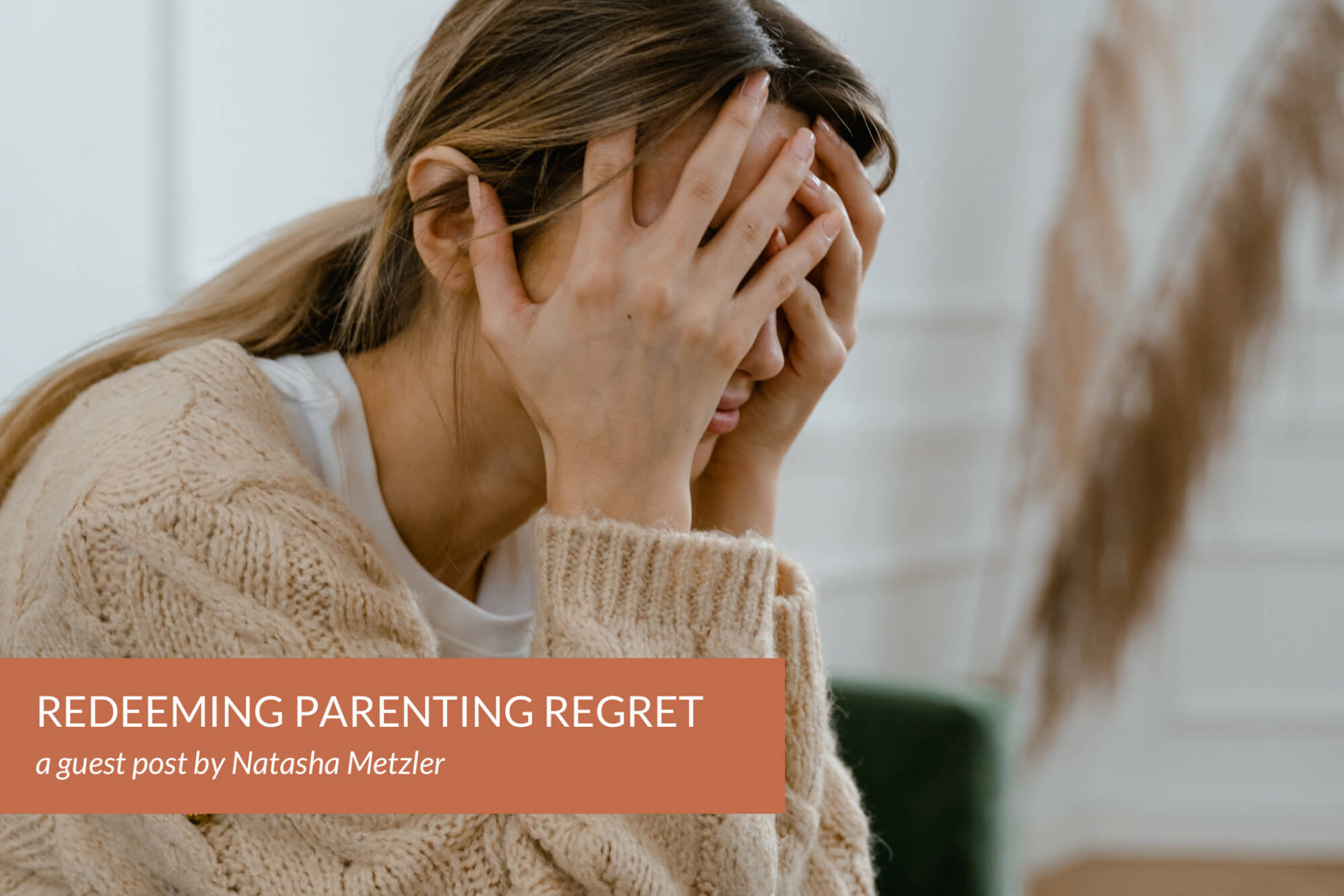
guest contributor: Natasha Metzler | www.natashametzler.com
A while back our family had some things come to light, where one child had lied so convincingly about the other that we, as parents, believed the wrong child. It was a serious issue, that had huge repercussions in all of our lives.
When the truth came out, I was devastated. Horrified. Angry at myself (the most) for not knowing, and angry with God that He hadn't done SOMETHING to show us the truth earlier. Because I had believed a lie, I perpetrated a lie, and maybe worst of all, I failed to protect one of my children from harm, when I would literally have done anything to keep them safe.
I was a mess. Not sleeping. Barely eating. I felt so stupid. Once I knew the truth, I could look back and see a million little moments when the truth had been *right there* and I had missed it.
"You should have known," was the constant refrain in my head.
Thankfully, I have some close friends who knew what was happening and surrounded me and helped me. I met with a therapist & one thing she told me over and over was, "You can't know what you don't know."
The shame I felt for not knowing, wasn't mine to carry. It was not my fault I didn't know. That didn't mean that I didn't have responsibility! I had to apologize, I had to humble myself as we worked to right wrongs. I needed to learn from our experiences. And at the same time, I could also walk in freedom from shame and condemnation.
Scripture tells us in Romans 8:1 that there is no condemnation for those who are in Christ Jesus. This means we are FREE from the lie that we need to get everything right to be acceptable, or even to be successful!
In raising our kids, we're going to get things wrong. Maybe those things will have mild consequences on one child and life-altering ones on the next. We're human beings with complex nervous systems and outrageously complex brains. How things affect each person is impossible to predict or completely prevent.
If we believe that we are solely responsible to know everything and prevent everything, we're going to fail because that's impossible. Nobody can know everything.
So what can we do? Well, to be blunt, when we know better, we do better. We shift. We change. We stay humble and teachable.
And as we change, we show grace to others. Because people can't know what they don't know. (And just throwing information at someone won't fix that, hearing isn't the same as knowing.)
We can't fix these things for anyone else, but we CAN live out changes and make it easier for others to learn and grow without shame.
It's all a process though. It takes time and because life doesn't pause for us to figure stuff out, it's easy to get wrapped up in condemning ourselves or others. But what if, instead, we offered up hope?
This is the truth about Jesus that fills me when I'm devastated by my choices and others' choices. What following Jesus offers, is the knowledge that there is hope in every situation. Nothing is beyond being redeemed.
I can sit in condemnation because my parenting decisions opened the door for harm, or I can grieve and release those choices, trusting that God WILL step in and fill all the places where I fail. Then I'll do my best to follow His lead, repenting and seeking reparations where needed.
We are limited in our humanness, unable to know what we don't know. But we are also deeply capable, made in the image of a holy God, and when we know better, we can do better.
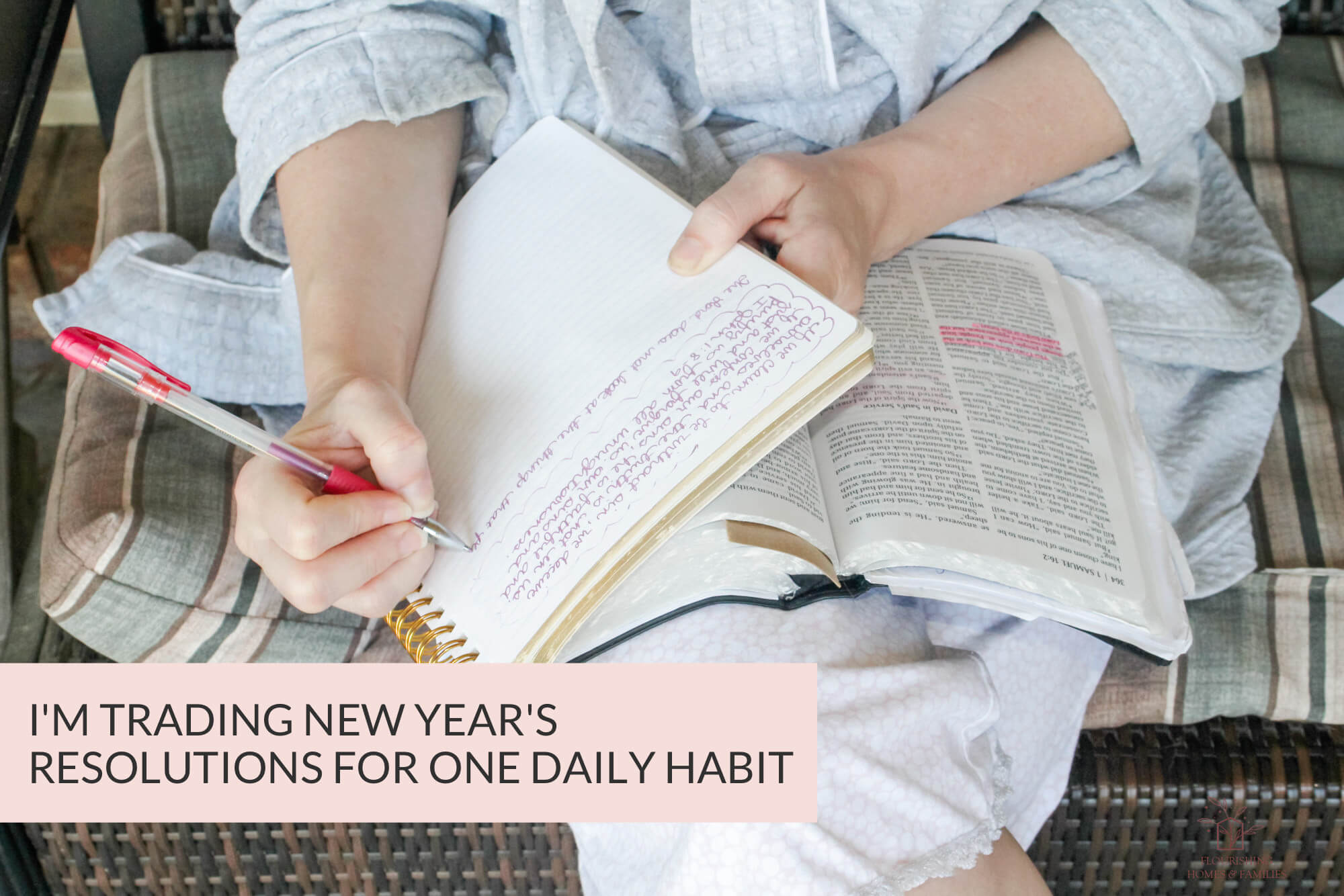
It is good to have visions and goals For many people, myself included, the start of the new year symbolizes a fresh start and new beginnings. I'm not trying to discourage you from setting goals. I've created many a vision board and set many intentions over the years. In fact, for the past three years I've shared the following parenting goals:
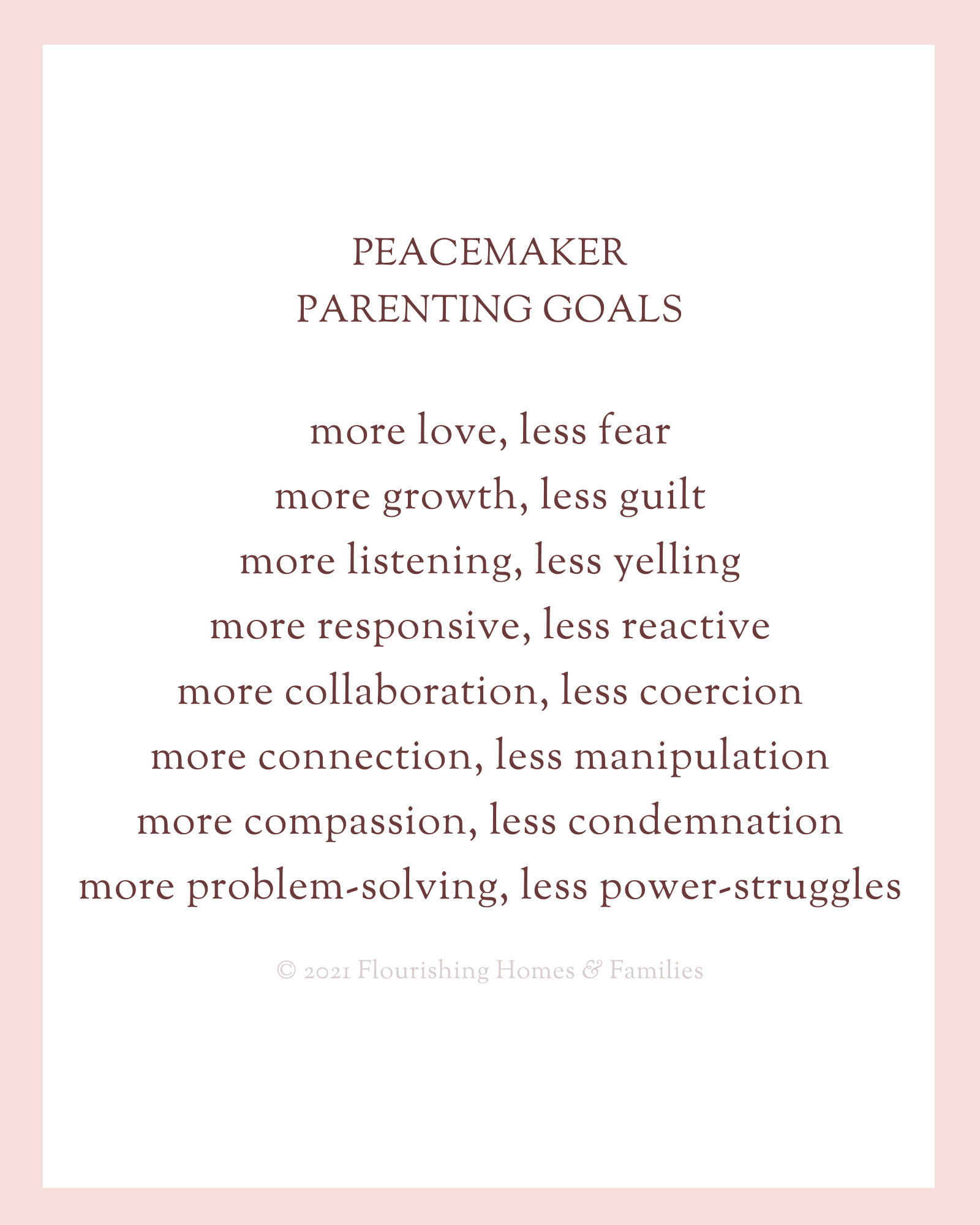
Unfortunately for many of us, New Year's isn't actually the best time to be setting new goals. Research indicates that only about 9% of people who make New Year's resolutions actually complete or accomplish them. So what if we switched it up a bit? And gave ourselves just the new habit of asking one question each day?
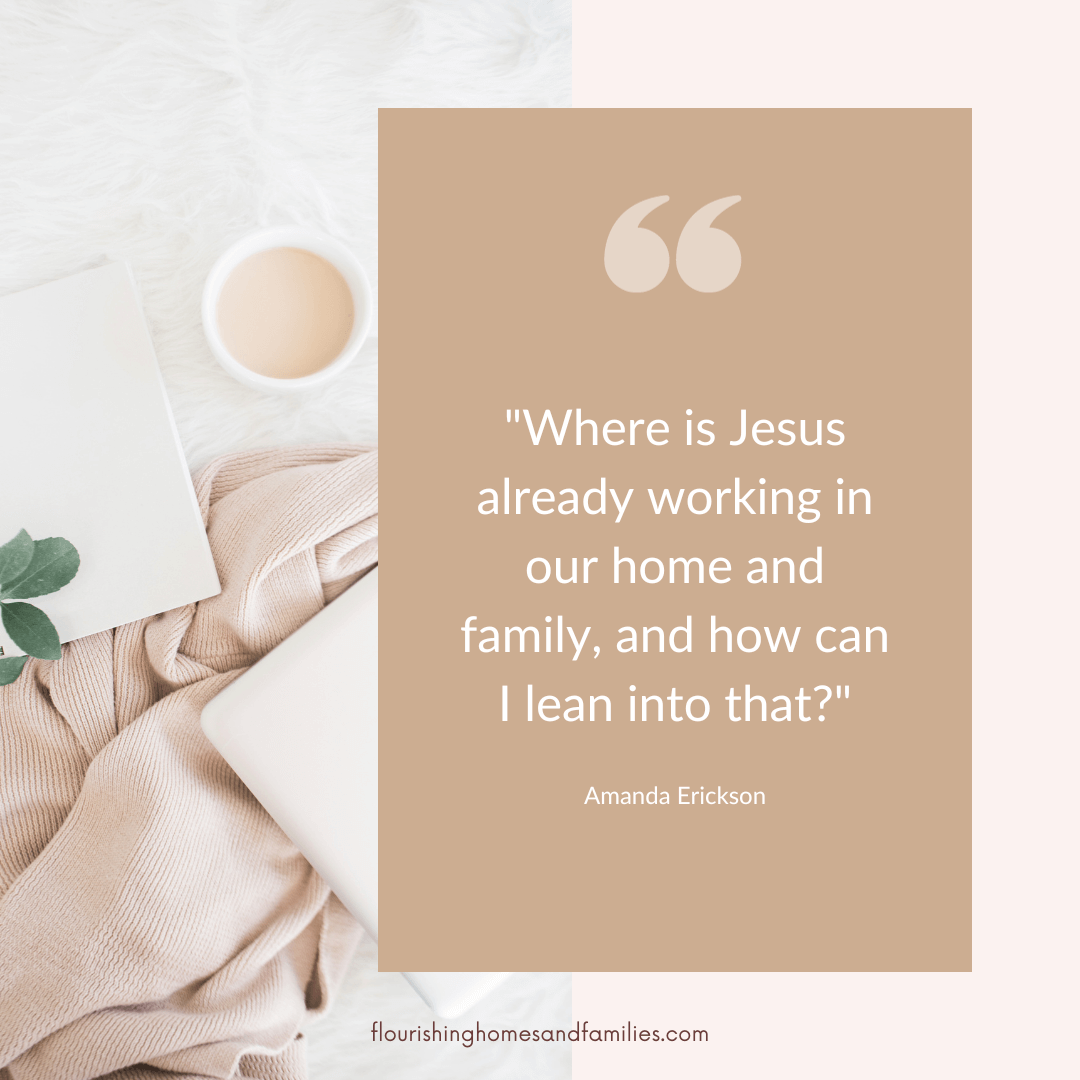
It's a simple question that may not have a simple answer. But I want to invite you to ask it because it centers Jesus as the source of growth and change, not our own grit and grind. And it reminds us that we are invited to participate in the work Christ is already doing, not merely to "do better, try harder" at being the person we wish we could be.
That is our hope, this new year. Jesus is at work in and through us. And while we may have good goals and big visions for change this year, we'll find sustainable growth in daily answering His invitation for small, often mundane maturing.
Goals are good. But if they're overwhelming in this season of your life, I hope you know that it is okay not to set any. Jesus is already working in and through you. He is always making all things new. He's making you new today, just like He was on October 25 and will be on April 3. And while it is helpful to embrace the motivation and energy we feel from others, if that motivation and energy leaves you feeling like you have to strive to keep up, to be new, or to be better, it's the wrong kind of energy. Jesus calls us to abide in, and rest in the work He has already done, and trust in and join Him in the work He is still doing.
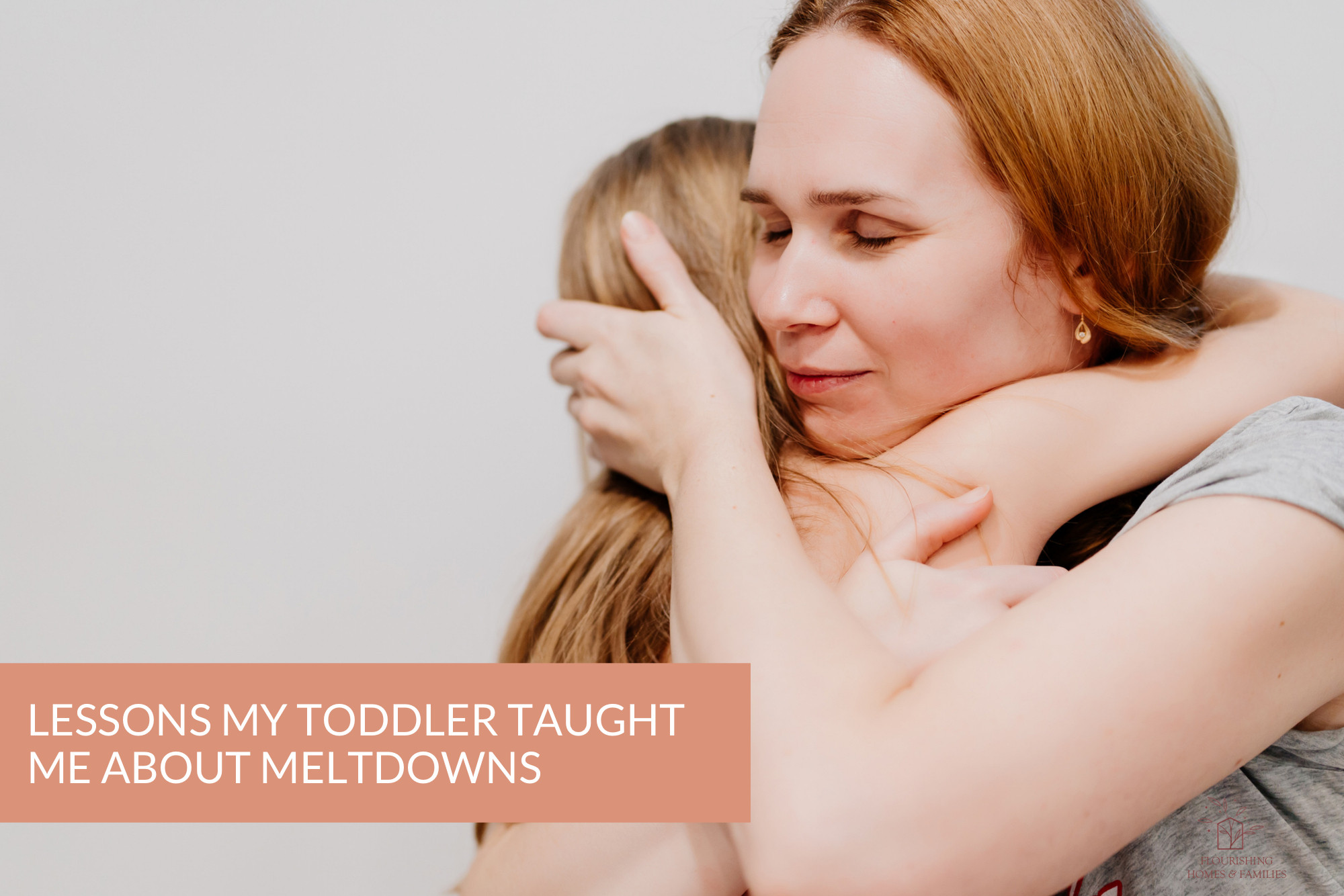
My toddler seemed to be having fun. Everything seemed great–but then she saw that her brother had one of the 20 yellow fish toys they’d been happily sharing for an hour. She began to melt. We were outside in our yard, but we were living in a busy neighborhood and the screams and flailing became really intense. My mind immediately went to “What on earth will my neighbors think of us?!” and I became dysregulated myself. The logic I tried to use to help her was not working and things were just ramping up. So I carried my three-year-old upstairs to a quieter place to try to figure out what was going on–also to hide from the public eye, because who wants that kind of pressure?! I was trying to stay calm but to be completely honest, I was in tears too. I did not grow up in a community that “navigated” toddler meltdowns with much grace–they weren’t really allowed and moms who navigated or tolerated them with anything besides punishment were often shamed. I didn’t really know what to do, but I do remember mustering all of the willpower I could and I decided that even if I didn’t know what to do exactly, I wasn’t going to lose it with my kid in this moment. The screaming lasted longer than I’d ever seen–20+ minutes. Nothing I mentioned seemed to help. My child was not interested in breathing, or I spy, or hugs, or connecting with me. She was just loud. But then I got a clue and she said something I won’t ever forget– “Help me, Mommy!” That was something I needed to get me through not only that meltdown but every other toddler meltdown I’d experienced with my children from that day on. I stayed nearby. Reminding her I was there when she was ready and that she was safe. It lasted a long time, but she settled and crawled into my lap. Sobs became less and less until they stopped. We re-connected and after a snack and a juicebox, we went back to playing.
Surely I’m not the only one who has taken a big ole toddler meltdown personally–right? (pssst, if you’re wondering the difference between a tantrum + a meltdown read here)
The intensity of demonstrated emotions can be a super huge burden to bear–especially if toddler emotions were met with punishment when you were a kid. Your toolbox may feel a bit empty as you find yourself in the middle of these instances. But the thing I took from that experience I shared above is this:
A meltdown isn’t any more fun for your toddler than it is for you.
I used to think a toddler who was screaming and yelling was doing something that they really wanted to do and just needed a lesson in self-control to learn how to control what they desired to do. That isn’t the case. I repeat: that is not the case!
That recognition of the frightening struggle a child is having during a meltdown opened my eyes to some other mindsets that have helped significantly as I’ve navigated more and more of these big feelings with my kids:
- A meltdown doesn’t feel any better for your toddler than it does for you–they are out of control
- When meltdowns happen, your toddler doesn’t know how to immediately get out of it
- Trying to force an end to a toddler meltdown doesn’t teach or help them with anything–suppression isn’t the answer
- One of the only things a parent can offer a toddler in the thick of a meltdown is a calm body of quiet support
- When a toddler is in meltdown mode reasoning is not an effective strategy
- Don’t set a time limit in your mind– you’re in this for the long haul with them and your love won’t waver. You are both safe
How does this help? Well, when we can get ourselves into such a posture of peace that their behavior doesn’t shake us, it helps everyone. And for as icky as it can feel for everyone during a meltdown moment, they do always end. That is another big one – These big feeling moments are loud and can feel so long, but they do not last forever. Being a calm and safe body in the middle of a feelings storm for your child is one of the few tools they can actually use to pull themselves out–remember that, mama. It’s a tough job–but you’re helping your child way more than you know when you’re able to keep, or reclaim your peace through these intense moments.
Want to hear more about what each of these things look like in practical everyday life? Do you have a particular struggle you’re trying to navigate that you want some coaching in? We have a toddler workshop coming up that will cover these things and more and we’d love to have you join us!
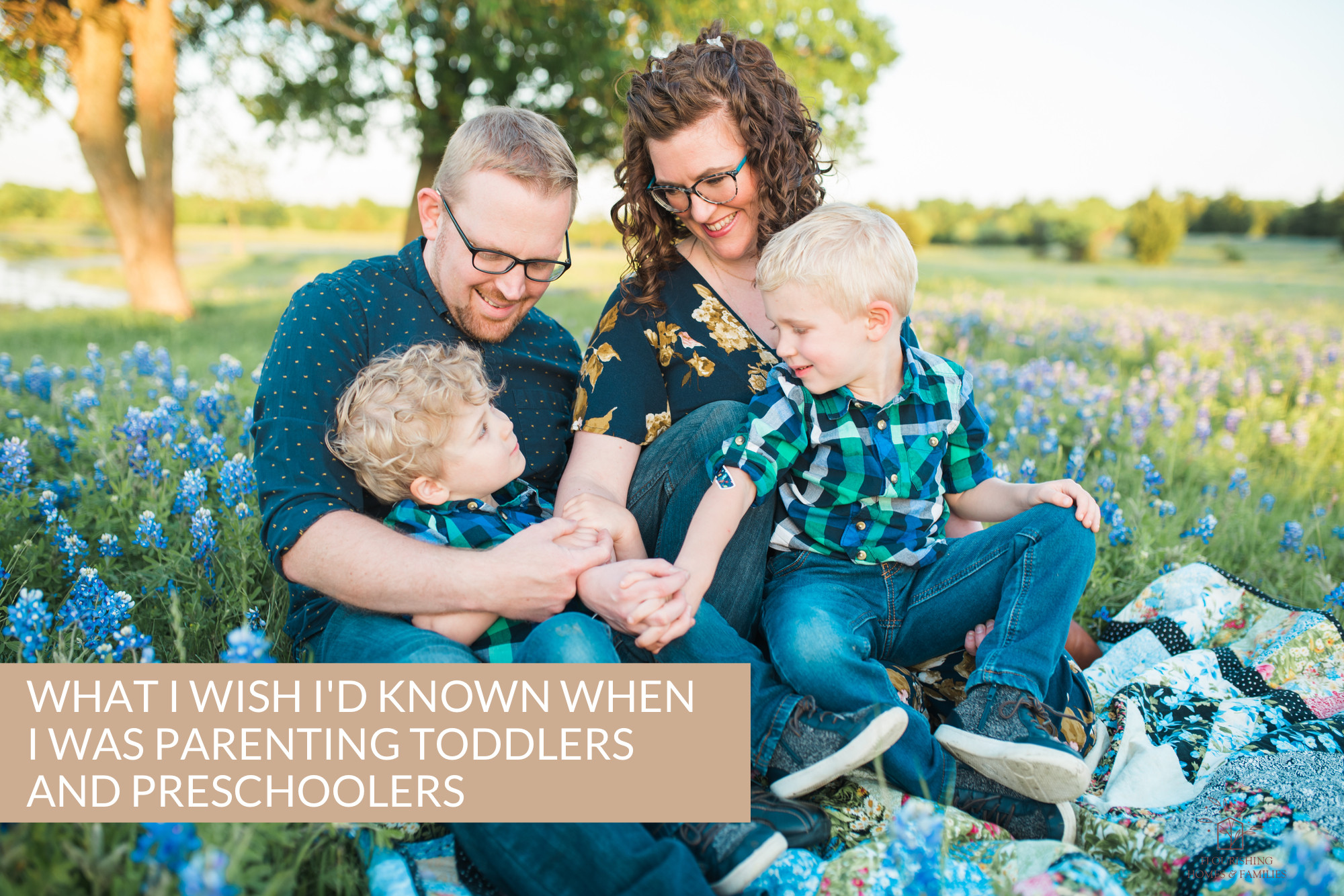
As I write this my boys are staying up a little late to read. Elijah (7.5) is reading a LEGO Ideas book and Ezra (9) is Charley and the Chocolate Factory. There's a soft glow peeking under their doorway, and as I reflect on this day I can't help but think of what bedtime looked like a few years ago, anyhow desperately I longed for them to go to sleep so I could...just breathe.
I'm filled with gratitude for the years of hard work David and I put into learning to parent with gentleness, grace, and peace. The toddler and early preschool years were especially difficult for me (hello postpartum anxiety), and there were plenty of times I said "I can't do this anymore!"
But here we are years later, and our entire family has affectionately started referring to this summer as "The Summer of Peace." Our home is filled with peace, even as we navigate big changes for our family and while David and I finish the manuscript for our book. These are the days I longed for, hoped for, and prayed for when our boys were young. And as I reflect on those early years, there are a few things I wish I'd known.
What I Wish I'd Known When I was Parenting Toddlers and Preschoolers
- I wish I had known that the fruit of my labor would show up sooner than I thought, and in the most unexpected ways. I saw little glimmers of it every now and then, like when our then three-year-old told his two- year-old brother, "You're in my space, please play somewhere else." and the two-year-old replied, "Oh okay!" and moved to the other side of the train table. But many times it felt like my efforts were in vain because I didn't see that much fruit as soon as I wanted. Looking back, the peace, honor, emotional intelligence, assertiveness, and teamwork that we cultivated actually did reap a bountiful harvest! But not always, and not perfectly. And I wish I hadn't expected it to be always or perfect.
- I wish I had known that I would never regret choosing to parent with gentleness and peace. When my children were younger I had a lot of fear of messing them up. We started out spanking and parenting pretty traditionally, and were very quickly convicted that treating children as less worthy of honor, respect, and protection than adults was not aligned with the way of Jesus. But even with strong convictions, I still feared it wouldn't "work". I wish I had known then that I would never regret treating my young children with honor and dignity. Watching them grow in honor and respect, not out of fear but out of love for others, has been a beautiful journey.
- I wish I had known that laying a foundation of trust creates a safeharbor for complex conversations. As our children get older, conversations become more challenging. Because we worked so hard to become safe for our children no matter what, they know that tricky and complex conversations are inherently safe to have with us. It doesn't necessarily make those talks easier or less uncomfortable, but it does create safety and vulnerability. Trust really is the key that unlocks healthy, flourishing relationships.
- I wish I had known that I would enjoy collaborating with my kids. There is so much pressure on parents to control their child's behavior, and when they were small I felt that pressure heavily. Looking back, I wish I had known how truly delightful it is to problem-solve and collaborate with kids. They're naturally creative and curious, and they come up with some of the most out-of- the-box solutions to problems. Letting go of my desire to control them and their actions freed me to enjoy them for who they are, and it allowed me to genuinely appreciate their problem-solving skills.
- I wish I had known that connection is correction. We've heard it many times from many places: connect before you correct. And there's wisdom in that for sure. But it took me a long to recognize that connection is a form of correction because it models for our children what we expect from them. It models conflict resolution, reconciliation, emotional regulation, and kindness in the face of adversity. Is it the only form of correction? No. But it is probably one of the most under-appreciated ways of correcting a child's behavior, and I wish I had realized its power long before I did.
If I had to do it over again, here's why |would:
In general I don't like using my children as examples of why Peacemaker Parenting "works" They are not my report card, they're not my trophies to show off. They are their own people, and ultimately they do and will get to make their own choices. So I hesitate to share their stories too publicly. Yes, we enjoy a beautiful, trust-based relationship. Yes, they are generally well-behaved kids. Yes, they know how to bring peace to their own conflicts and rarely need us to coach them through fights or disagreements. But none of that is why I'd choose Peacemaker Parenting again. Rather - it is because parenting with peace and gentleness forced me to confront my own emotional immaturity and surrender it to Jesus. It tested how deeply I trusted Jesus to be my source of peace, my identity, and my strength, and it helped me realize just how truly gracious He is to me.
If you're in the thick of it with toddlers, I want to invite you to join our next workshop: Peacemaker Parenting Toddlers. It's specifically geared at providing a model of Jesus-Centered parenting for parents of 15-36 month old children, but the truths and tools will be applicable for preschoolers and early childhood as well.
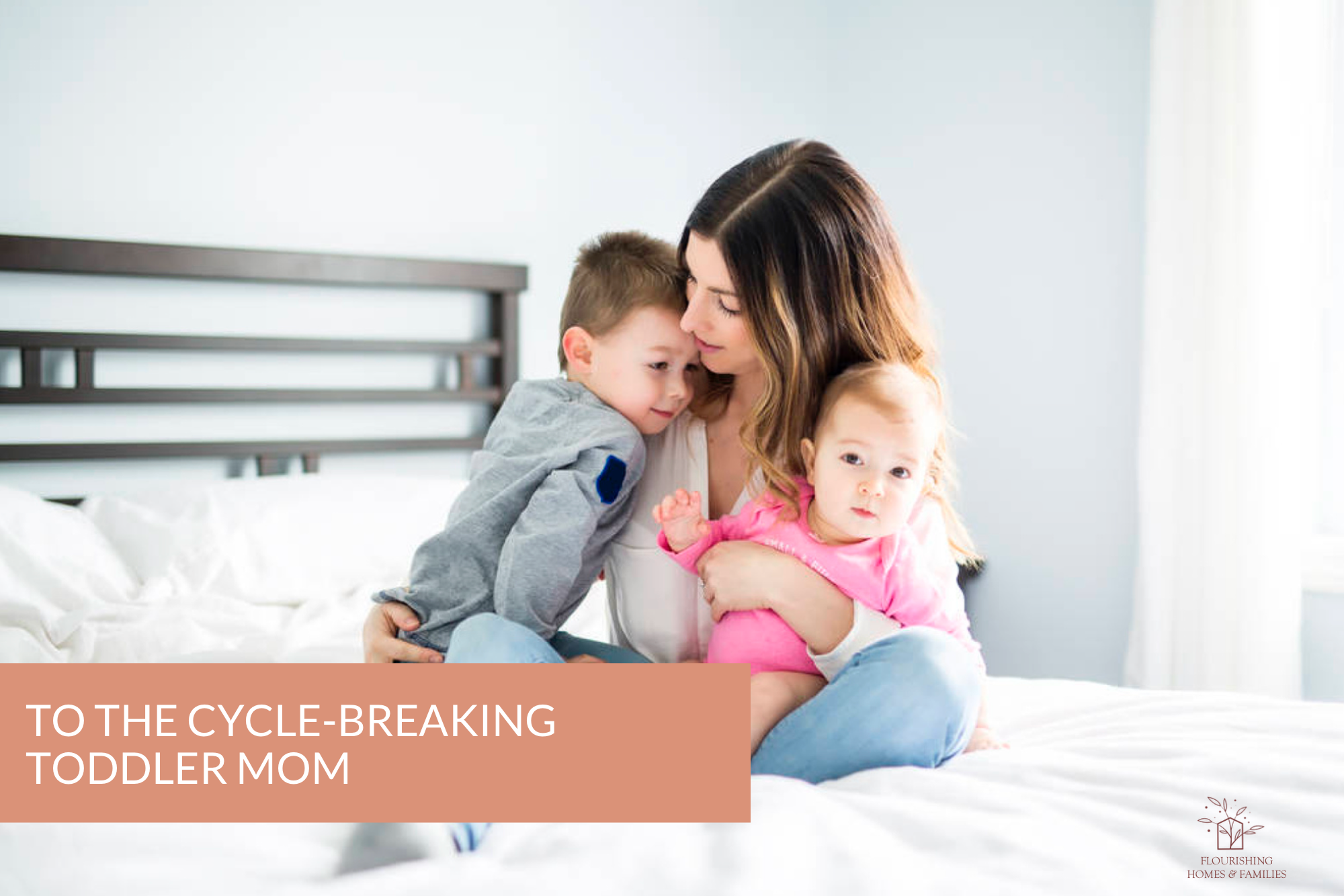
To the cycle-breaking toddler mom,
Yikes, huh?
These days are tough– you are learning to navigate a whole new set of obstacles. Your child who was mostly eating, sleeping, and pooping for a while is moving into their own personality in a whole new way. You are excited and terrified at the same time. If you're like me, you find yourself in two groups of people – the first group is made up of parents who lament the dreadful toddler moods and wild-and-free ways, and the second group is parents who seem to have their toddlers sitting quietly through a church service with no fuss or discussion. And here you are just trying to maintain your dignity and confidence in front of these people while accidentally wearing the shirt with spaghetti stains and wondering if maybe you’re wrong for making the decisions you’ve made for your family about being a peacemaker parent instead of a punishing one.
I’m here to remind you– you are doing the right thing.
Sure, the toddler days are accompanied by some rough and tumble days. It comes with the turf.
These little people follow you like a shadow.
They nearly fall asleep sitting up but will suddenly muster all of the energy in the universe to fight bedtime with much gusto.
They cry when their lunch is cut into the wrong shape, when the green cup is dirty, and when you mispronounce the word they made up.
They know exactly what they’re asking for when they say “ahh bubfhryskaya” but you wonder if a high-ranking military interpreter might be able to spare a few minutes to translate for you.
Sometimes it feels like no one sees the countless hours you invest in caring for their physical, emotional, and yes, even spiritual needs. Many days your hard work goes unnoticed and unappreciated. And while it feels like no one sees - your precious little ones are watching you ever so closely. Because they adore you. Because they trust you. Because you are their safe place when everything in their little world feels too big - your love feels bigger.
This is the real reason they act spectacularly "difficult" just for you - you are their safe place.
You are the mom who is growing and learning all about them. You see their physical and emotional needs and you show up in ways no one else does to meet them.
You are the mom who refuses to punish them for lack of development. You refuse to use fear or shame to manage their behavior, and that means they're also not learning how to repress deep emotions - those emotions are being felt, as God intended them to be, sometimes without reservation or inhibition.
You take seriously your responsibility to show the heart and character of Jesus to your child. You know that spiritual and character formation begins not with managing behavior, but with introducing your tiniest disciples to Jesus, and you imitate Him as you disciple your children.
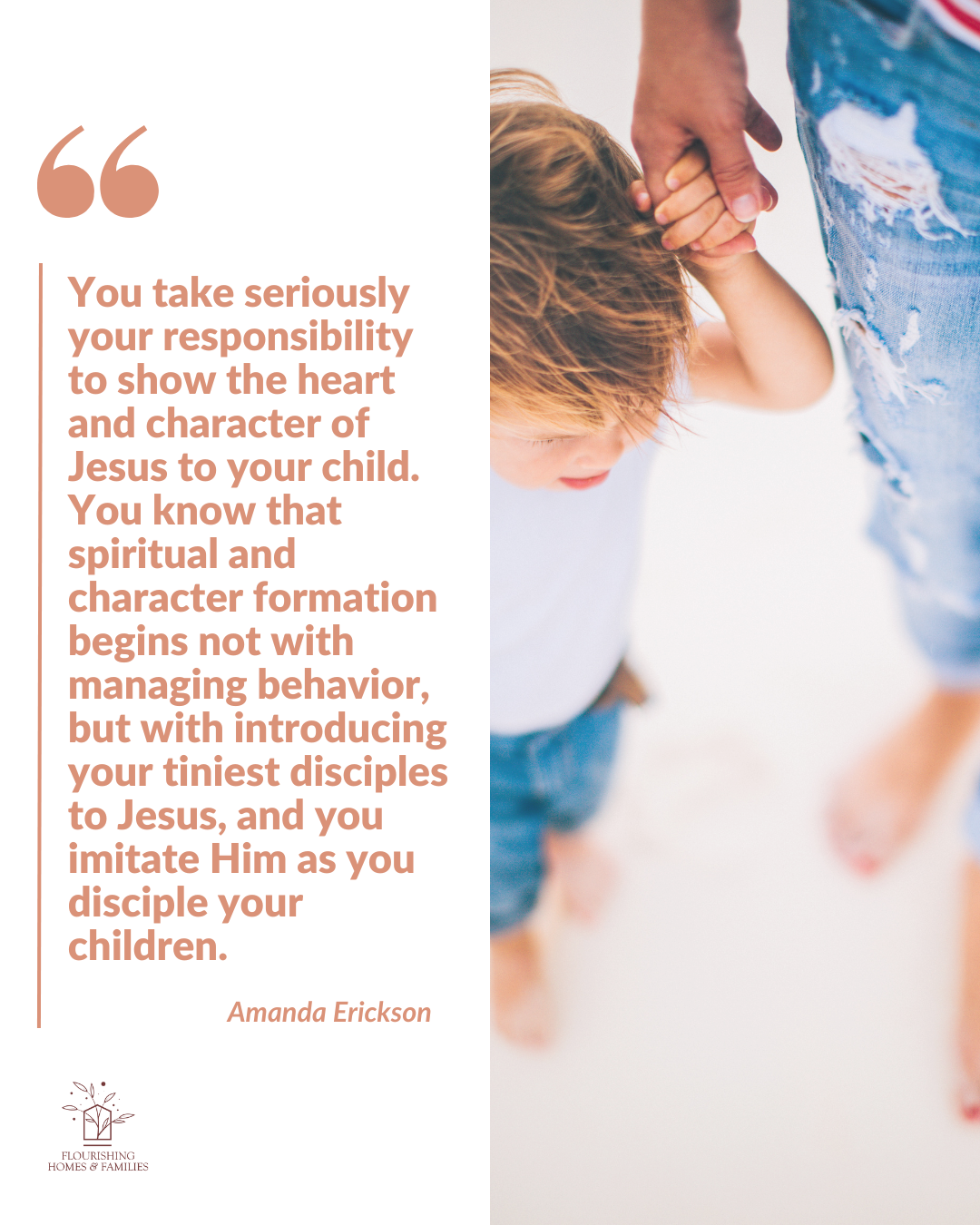
You are the mom who is doing your best and even though it might not seem like it, your child knows it and they love you for it. Your best on Thursday night might look different than your best on Saturday morning, and that's okay. Because even when you mess up and struggle, you're teaching your children how to do that well.
Cycle-breaking mama, you are empowering your little ones in ways you won't even know for years to come. You are loving them. You are modeling the heart of God to your children in a tangible way.
If you were raised in a circle of people who don’t align with treating toddlers as whole persons deserving of honor and respect, let me tell you right now–just because a whole bunch of generations taught one thing, doesn’t make it true. This feeling of “What are people thinking of me as a mother” can be a really strong emotion to conquer. I feel you on that, I've been there–so many times, actually. They’re tough feelings to sit with, but take the time to work through them. It will be worth it.
If you haven’t heard it lately – frequent meltdowns, unpredictable outbursts, yelling, saying no, and not following instructions are all normal for a child who isn’t afraid of punishment. It is part of their learning process. These things are not cause for shame or “What is wrong with me” conversations in your head. They are doors for you to walk through and teach your child through love. They're opportunities to celebrate the way God designed your child. And yeah, they're a chance for you to grow too.
I know it’s hard. The ups and downs of toddler emotions can make a mama want to lock herself in the bathroom with a pair of headphones a handful of peanut M&Ms and never come out. Ask me how I know.
Hear me when I say you’re going to get through this.
You probably won’t “nail it” every day–no one does!
But every day you learn a little more and you practice a little more, and you make a little more progress. Soon enough, the cycle of fear, shame, or abuse is broken. And guess what? It started with you.
So reheat your coffee however many times is necessary today. Take a breath. Say a prayer. And remind yourself that you were made for this.
YOU MIGHT LIKE
